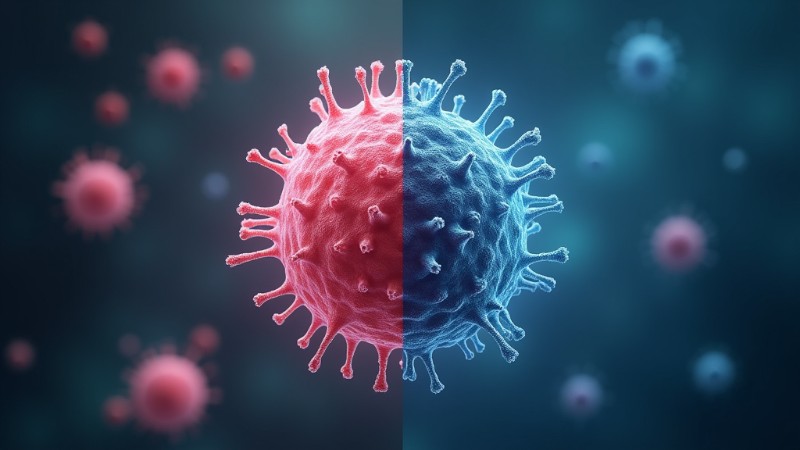Recent research has unveiled that aging is not a uniform process but occurs in distinct waves at specific ages. This new knowledge is based on a comprehensive study that examined the molecular and microbiological alterations in our bodies, indicating significant changes between the ages of 44 and 60. These findings show why some health conditions become more evident at these phases and provide actionable insights into managing aging more effectively.
The study: A closer look at aging
A study published in Nature Aging provides important insights about aging. Researchers studied approximately 135,000 chemicals and bacteria in 108 healthy volunteers aged 25 to 75. Participants provided biological samples, such as blood and stool, every few months for approximately two years.
The findings revealed that significant biological changes occurred during two important periods: the mid-40s and early 60s. This study expands on prior research that found comparable patterns of the immune system decrease at ages 35 and 65.
Aging in your 40s: Initial shifts
The first wave of aging typically begins at the age of 44. Muscle strength, skin elasticity, and the body’s ability to metabolize substances such as coffee and alcohol all decrease during this time. Researchers discovered that people in their 40s have lesser activity in cellular pathways involved in breaking down fats and alcohol, which can lead to slower digestion and an increased risk of metabolic problems.
Furthermore, this time frequently implies increased cardiovascular risks. The study suggests that alterations in molecules connected to cardiovascular health and metabolic processes are visible over this time. This phase is also associated with a higher risk of health problems, as seen by anecdotal reports of more frequent muscular injuries and worsening hangovers.
Aging in your 60s: Accelerated changes
The second wave of significant aging comes at the age of 60. Individuals’ kidney function, immune response, and ability to digest carbohydrates and lipids all diminish more dramatically during this time. According to the study, people in their sixties have lower levels of immune system molecules and are more likely to develop type 2 diabetes and cardiovascular disease.
These changes are associated with a broader decline in organ function and an increased vulnerability to chronic illnesses. The study’s findings indicate that a compromised immune system and reduced efficiency in metabolic processes are important factors in the accelerated aging observed during this time.
Implications for health management
Understanding these waves of aging can help in managing health proactively. For those in their 40s, regular exercise, particularly strength training, can counteract muscle loss and support cardiovascular health. Staying hydrated and checking lipid levels with blood tests can also help.
For individuals in their 60s, focusing on maintaining kidney function, managing blood sugar levels, and addressing cardiovascular health is crucial. Early and regular tests can help detect and minimize potential health problems before they worsen.
Mental resilience plays a significant role in managing the aging process. According to studies, those who have a high level of mental resilience are better prepared to deal with the physical and emotional changes that come with getting older. Stress management strategies and mindfulness practices can help improve general well-being and quality of life.
Research and recommendations
While the study provides valuable insights, it also has limitations. The research included a small and geographically localized sample of individuals, which may limit the generalizability of the results. Further studies with bigger and more diverse populations are required to confirm these findings and investigate the underlying causes of the detected aging waves.
The latest research underscores that aging involves distinct phases with specific biological changes occurring around ages 44 and 60. Hormonal changes, decreased physical activity, and immune system function are all possible explanations.
Scientists anticipate that by continuing to investigate these issues, they may be able to develop more precise strategies for age management and better health outcomes.















